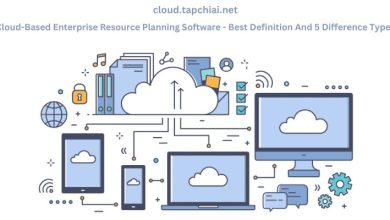Best 6 Cloud-based DevOps tools to Learn and Master

Best 6 Cloud-based DevOps tools to Learn and Master by cloud.tapchiai.net. Today, DevOps encompasses more than just a collaborative culture and automated software development. It incorporates cutting-edge technologies including cloud computing, artificial intelligence (AI), machine learning (ML), and the internet of things (IoT). Too many outstanding DevOps tools, including those for build, version control, configuration management, project management, incident management, and other functions, have been developed. However, in this DevOps course, we’ll just look at a select handful of the best tools for use across a range of DevOps processes and categories.
Contents
Version Control Tool: Git ( Bitbucket – GitLab – GitHub,)
In a time of development that is defined by dynamism and collaboration, Git is maybe the finest Cloud-based DevOps tools and most extensively used version control technology. For many reasons, Git is the best version control system. In order to make it relatively easy to use the older versions of the code in the event of an error, version control offers developers a mechanism to keep track of all the updates and changes in their scripts.
The Git DevOps tool is easy to set up since it is compatible with the majority of protocols, including HTTP, SSH, and FTP. In contrast to the majority of other centralized version control technologies, it provides the best benefit for non-linear shared-repository development projects. This makes it a fantastic deal for mission-critical applications.
Three storage technologies are included with Git: the source code hosting service BitBucket, the cloud-hosted code repository services GitHub and GitLab, and. GitLab and BitBucket are the only two of the three that are made exclusively for enterprise-level version management.

Continuous Integration Tool: Jenkins
Jenkins is a cloud-based DevOps tools. Jenkins stands out for continuous integration (CI) since it is made for both internal and plugin expansions. Jenkins is a Java-based CI server that is free and open-source and can be used with Windows, macOS, and other Unix-based operating systems. Jenkins may also be installed on cloud-based platforms.
Jenkins is a crucial cloud-based DevOps tools since it supports Continuous Integration and Continuous Delivery, two essential DevOps concepts. The roughly 1,500 plugins that are available to enable integration points for supplying customized functionality during software development make Jenkins compatible with the majority of CI/CD integration tools and services.
Jenkins is a useful CI automation solution that is comparatively simple to install and set up. It is made to facilitate distributed processes for quick and transparent platform-to-platform builds, testing, and deployments.
Maven – cloud-based DevOps tools
Maven is one of the essential cloud-based DevOps tools for project development. Apache Maven is more than just an automated build framework, in contrast to the ANT build system. Additionally, it is designed to manage the tasks involved in distribution, releases, reporting, documentation, and dependencies. Maven, which was designed in Java, can generate and manage projects that are written in Java, C#, Ruby, Scala, and other languages by using project object model (POM) plugins.

Maven – cloud-based DevOps tools offers its consumers a number of benefits. By automating the construction and monitoring processes, it facilitates consistency and efficiency and upholds a standardized build procedure. The name Maven, which is derived from the Yiddish language and means “accumulator of knowledge,” refers to the tool’s ability to provide full project information through high-quality documentation, an important resource for the creation of best practices. Finally, Maven offers a feature transfer method that is really straightforward.
It provides broad interoperability with IDEs like Eclipse, JBuilder, MyEclipse, NetBeans, IntelliJ IDEA, and others, as well as a huge collection of plugins to improve the build process. – cloud-based DevOps tools.
Configuration Management Tool: Chef
Configuration management (CM) describes the maintenance and control of the components of large, complex systems in a predefined, dependable, and known condition across the DevOps life cycle. Servers, networks, storage, and applications are all potential components of an IT system. – cloud-based DevOps tools
As a result, configuration management is essential to every system as it governs the process of tracking, correctly implementing, and controlling system modifications. Additionally, CM may be time-consuming, resource-intensive, and prone to costly mistakes if it is not automated. It manages repetitious administrative tasks like version control, legal compliance, product releases, and more by using configuration tools to automate procedures.
In order to automate infrastructure setup, a system known as Chef uses infrastructure as code (IAC) technology and a master-agent strategy. In addition to supporting several platforms, including the cloud platform, Chef continues to be one of the most widely used DevOps tools after Puppet.
Configuration Management Tool: Puppet
It is comparable to Chef in that it also makes real-time reporting, node management, and a master-slave architecture in addition to leveraging IAC, adopting a master-slave architecture, and having an intuitive user interface and a number of other activities simple.

Configuration Management Tool: Ansible
Ansible is an open-source deployment, automation, and orchestration solution for CM DevOps. Although Ansible employs an infrastructure as a code architecture, its push nodes are agentless because they connect over SSH. Ansible is regarded as the most user-friendly of the three since its playbooks are written in YAML with few instructions and are readable by people.
Hopefully through the article Best 6 Cloud-based DevOps tools to Learn and Master by cloud.tapchiai.net. you will have an objective comparison and make your own suitable choice.
Conclusion: So above is the Best 6 Cloud-based DevOps tools to Learn and Master article. Hopefully with this article you can help you in life, always follow and read our good articles on the website: Cloud.tapchiai.net




